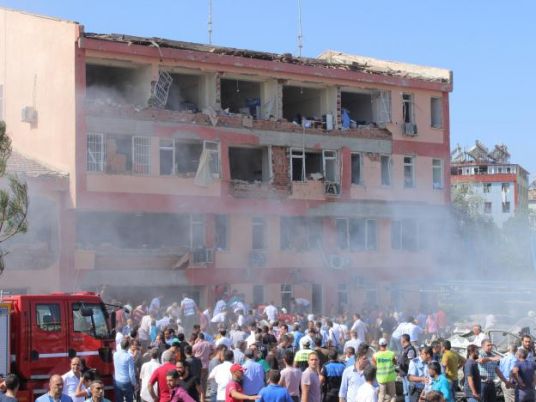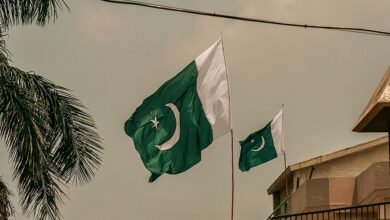
Turkish President Tayyip Erdogan on Thursday accused followers of a U.S.-based Islamic cleric he blames for last month's coup attempt of being complicit in attacks by Kurdish militants in Turkey's southeast which killed 10 people.
His linking of Kurdistan Workers Party (PKK) militants to those suspected of being behind the July 15 coup attempt came as Turkish authorities arrest or dismiss tens of thousands in a post-coup purge that some Western allies worry that Erdogan is using to target broader dissent.
Erdogan has blamed a network led by Fethullah Gulen, a cleric in self-imposed exile in Pennsylvania since 1999, for the failed rebellion launched by rogue soldiers.
His remarks were prompted by bomb attacks on Wednesday and Thursday that left 10 dead, mostly police and soldiers, and wounded 300 in southeastern Turkey in an escalation of violence that officials blamed on Kurdish PKK militants.
"You don't have to be fortune teller to see that the FETO is behind the latest PKK attacks in terms of sharing information and intelligence," Erdogan said.
FETO is the term Ankara uses for Gulen's network.
In the largest blast, a car bomb tore through a police station in the city of Elazig early on Thursday as officers arrived for work. Three officers were killed and 217 people were wounded, 85 of them police officers, officials said.
A plume of black smoke rose above the city after the blast which uprooted trees and gouged a large crater outside the police complex. Offices in the police station were left in ruins and filled with smoke after the bomb exploded in front of the complex, destroying part of the facade, CNN Turk footage showed.
"We have raised the state of alarm to a higher level," Prime Minister Binali Yildirim said at the scene of the attack, where a crowd chanted "Damn the PKK!"
Less than four hours later, a roadside bomb believed to have been planted by the PKK blasted a military vehicle in Bitlis province, security sources said. The blast killed three soldiers and a member of a village guard militia and wounded another seven soldiers, they said.
In Van province, two police officers and one civilian were killed and 73 people were wounded on Wednesday when a car bomb exploded near a police station, the local governor's office said.
No one immediately claimed responsibility for the bombings, but Yildirim said there was no doubt they were carried out by PKK militants, listed as a terrorist group by Turkey, the United States and the European Union.
The White House condemned the attacks in a statement on Thursday. National Security Council spokesman Ned Price said U.S. officials "are in close touch with Turkish authorities", and the two countries will continue to work together to combat terrorist groups.
Extradition demand
Authorities have arrested or suspended tens of thousands of police, troops, officials, judges and bureaucrats it says are linked to Gulen's movement.
Several thousand companies and institutions suspected of having financed Gulen have been shut. A total of 40,029 people have been detained in investigations following the coup, and 20,355 of them formally arrested, Yildirim said in a speech late on Wednesday.
Erdogan on Thursday again called on U.S. President Barack Obama to extradite Gulen. U.S. officials say they need to see clear evidence of the cleric's involvement.
"I personally asked Obama to extradite Gulen a year ago. I have asked him again after the latest events," Erdogan said. "Things are moving in a different direction in our country, and a strategic partner should not make its partners work harder."
Turkey's southeast has been scorched by violence since the collapse of a 2-1/2-year ceasefire with the PKK in July last year.
The PKK has since carried out dozens of attacks on police and military posts in the largely Kurdish region in its fight for greater autonomy for Turkey's 15 million Kurds.




